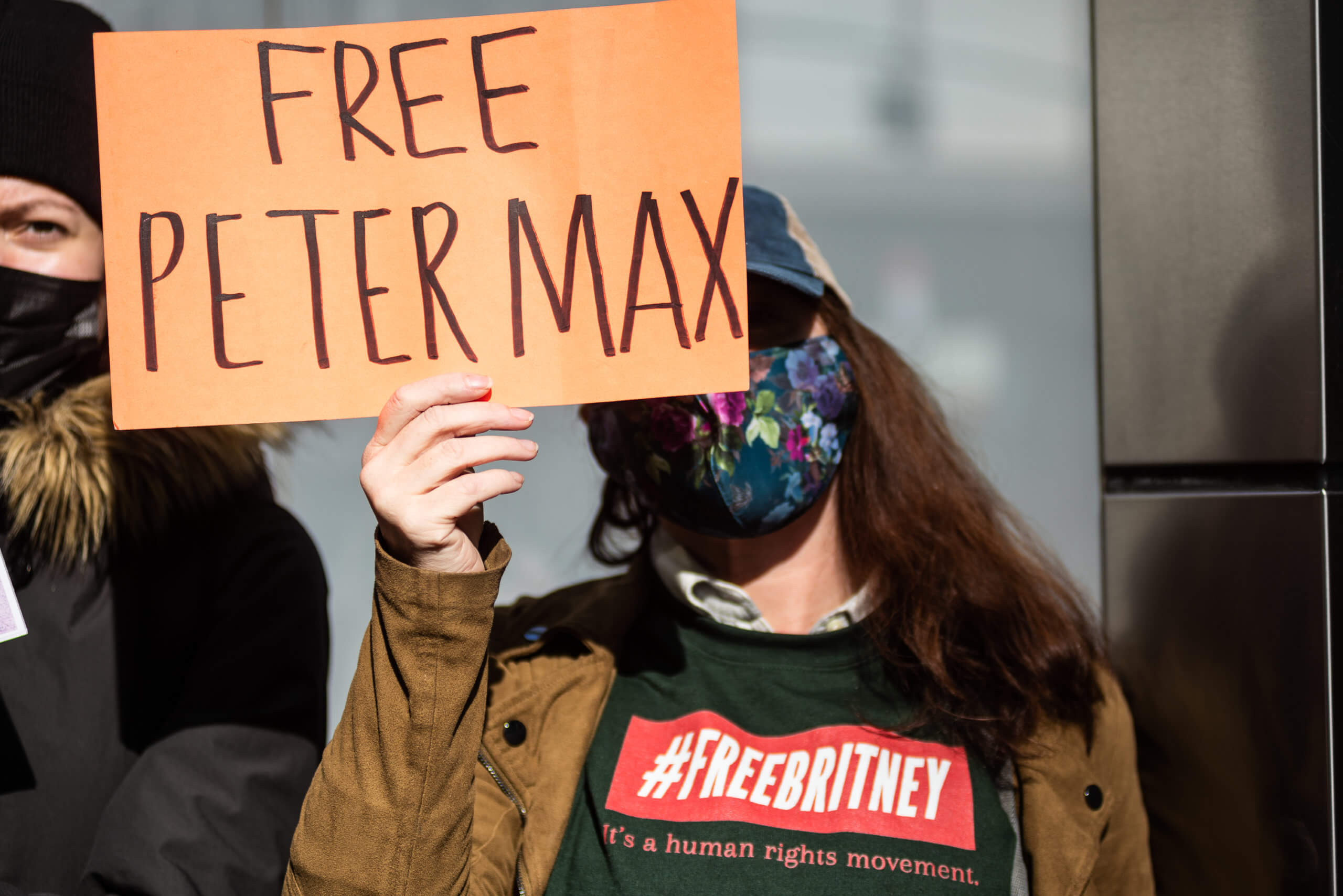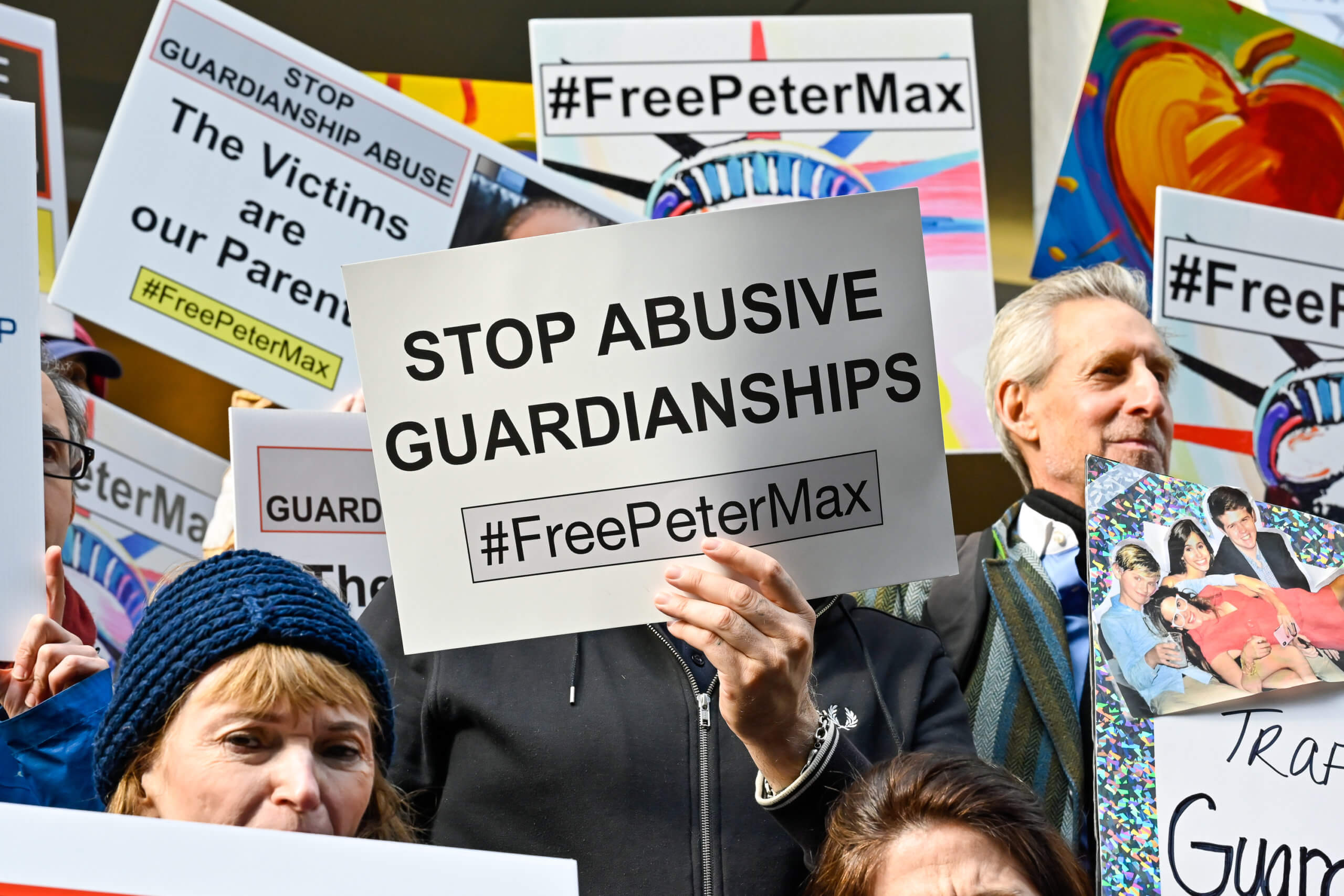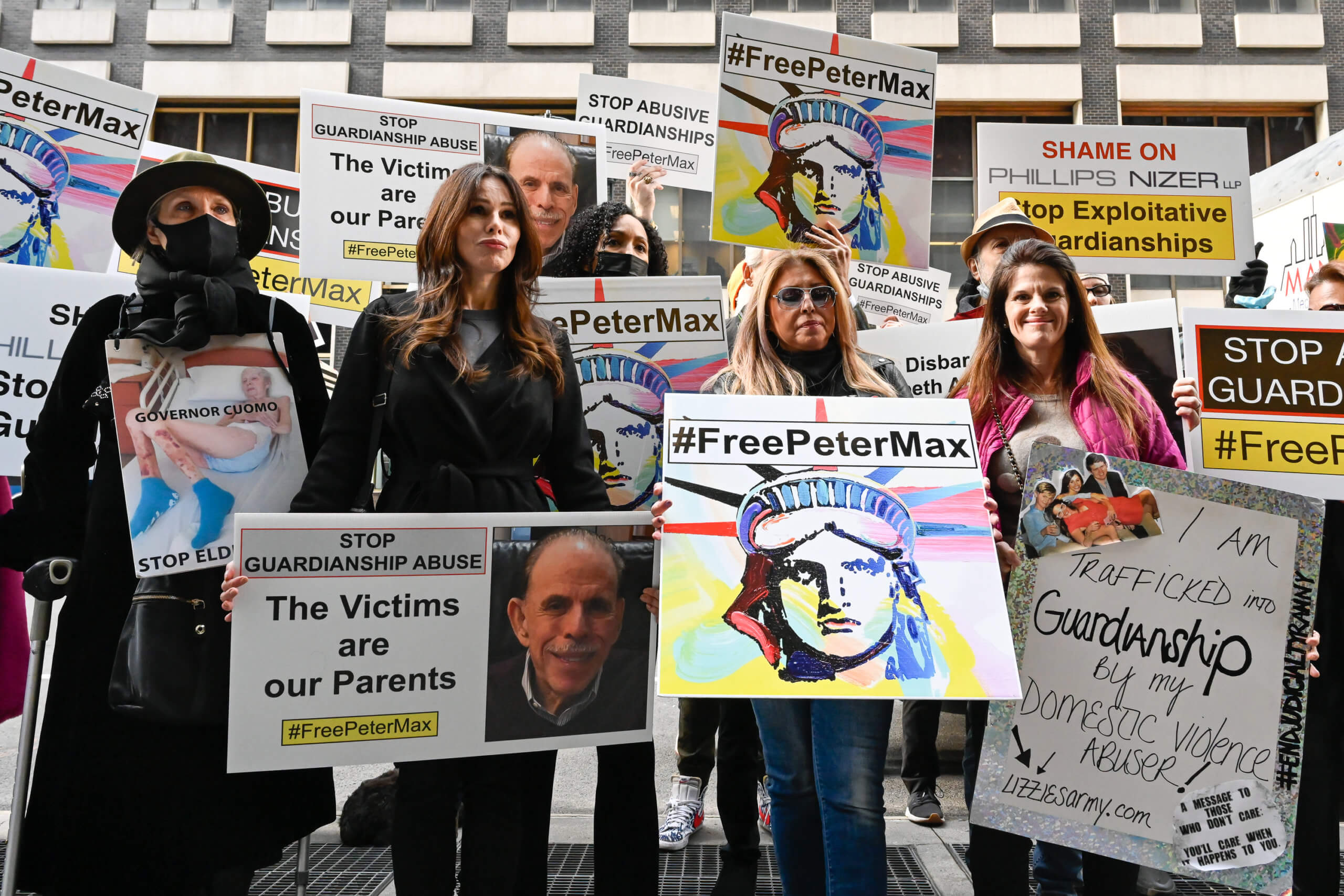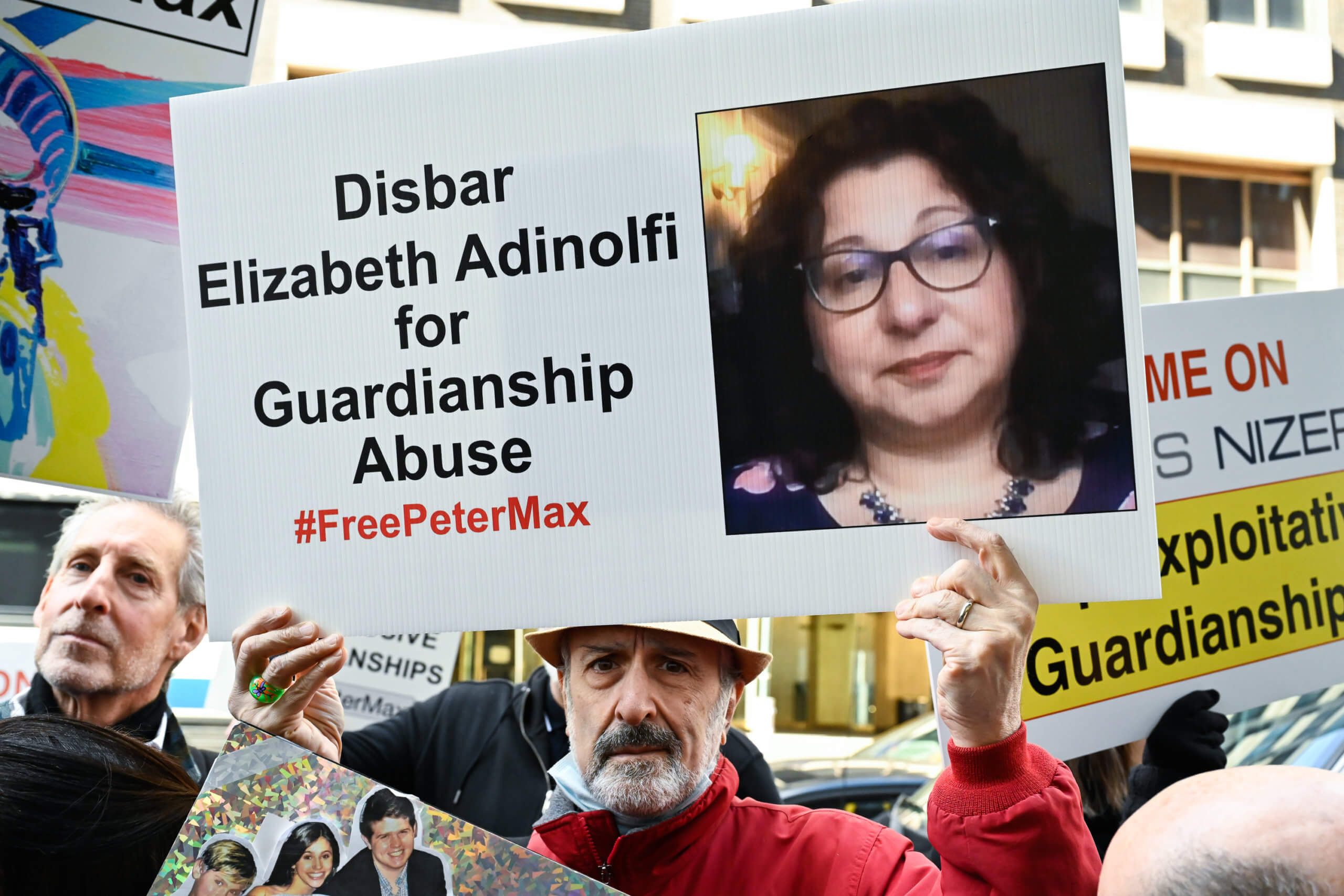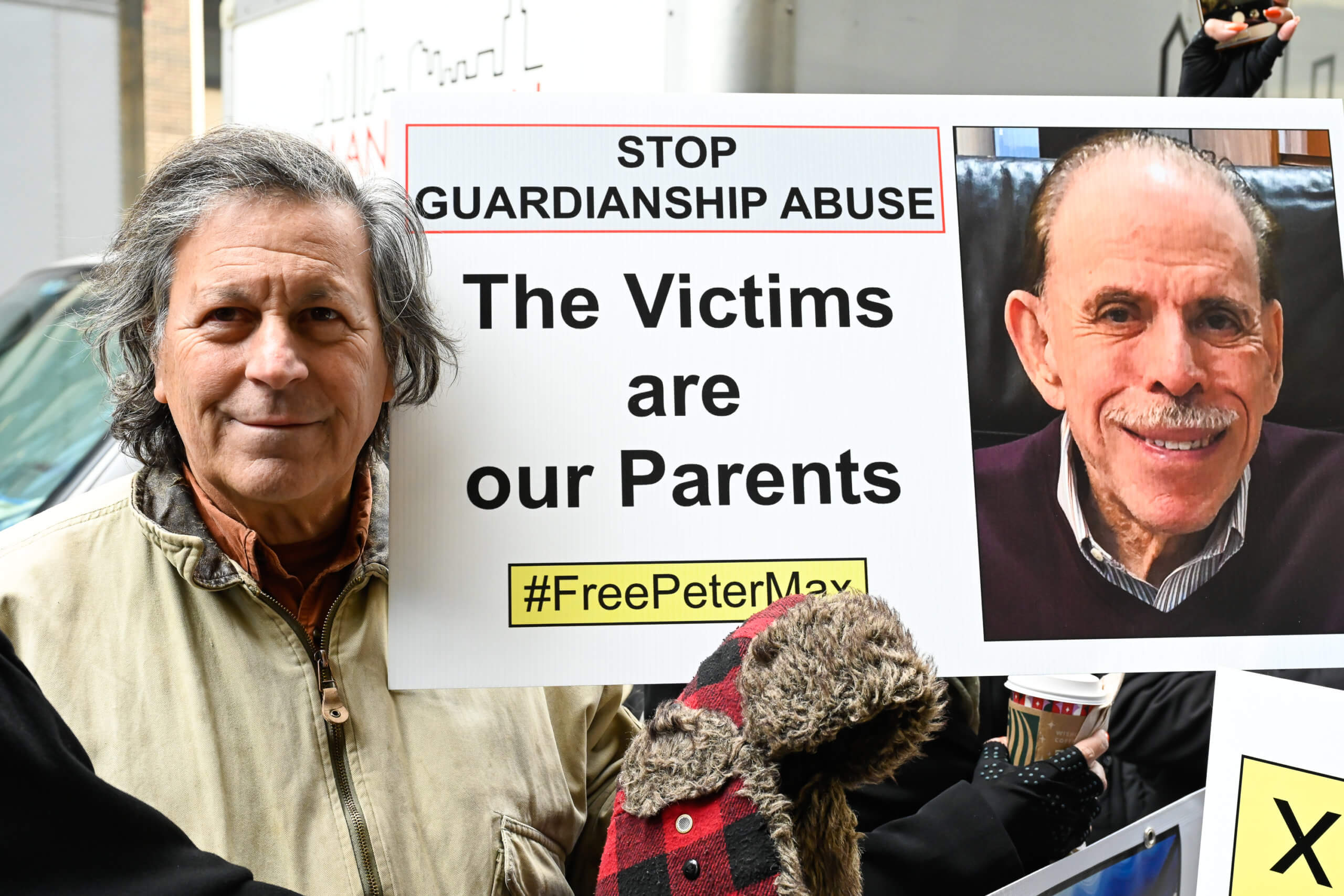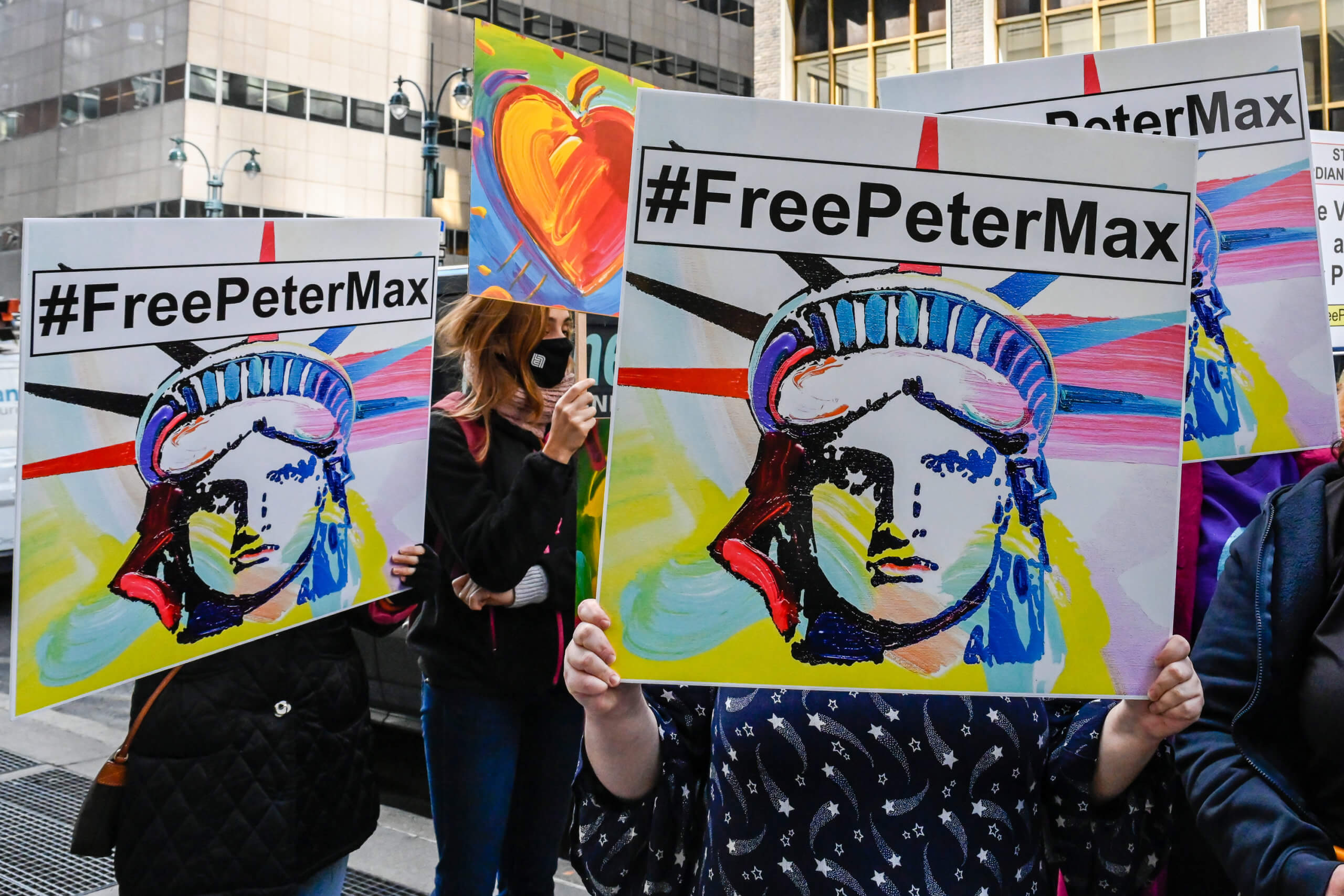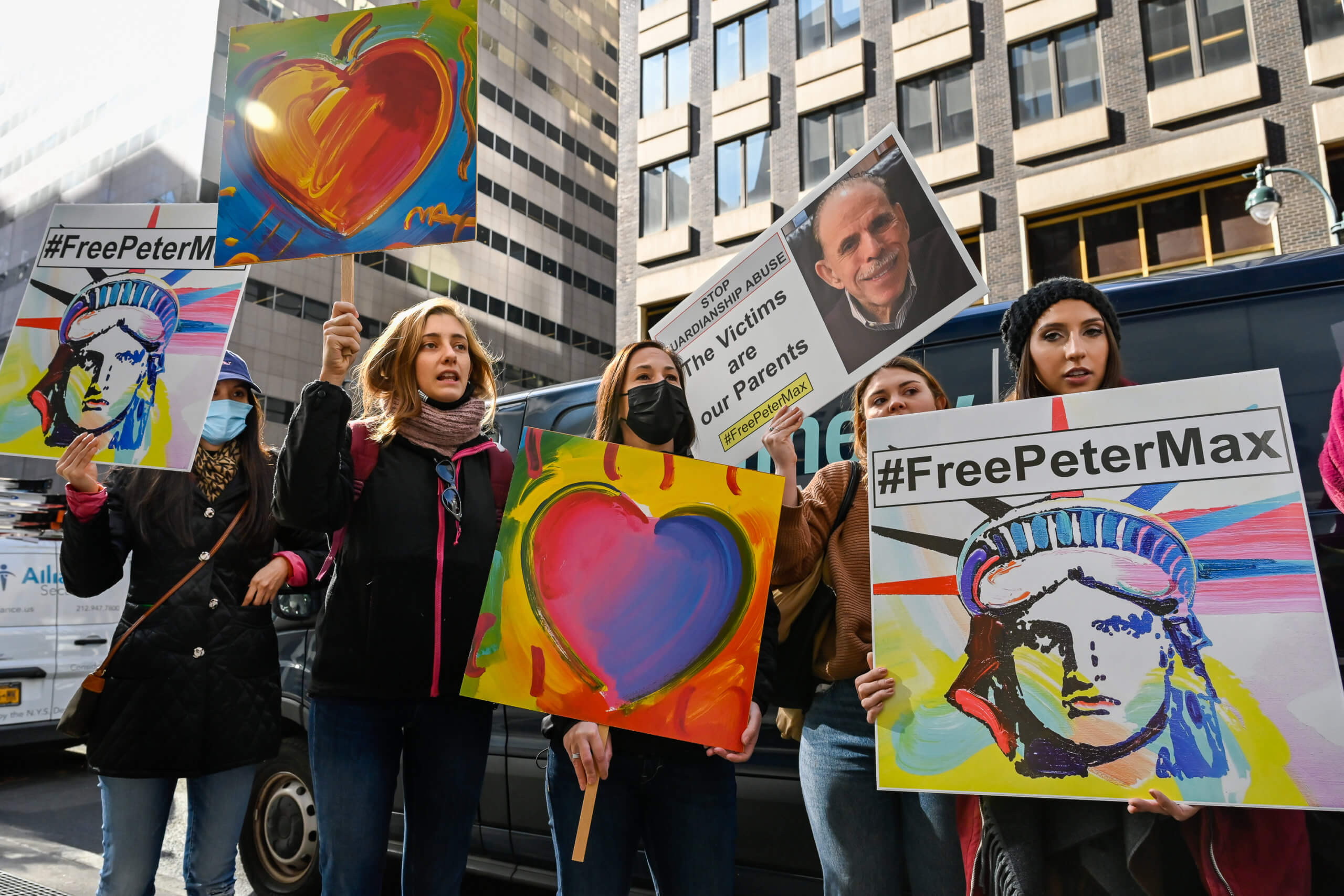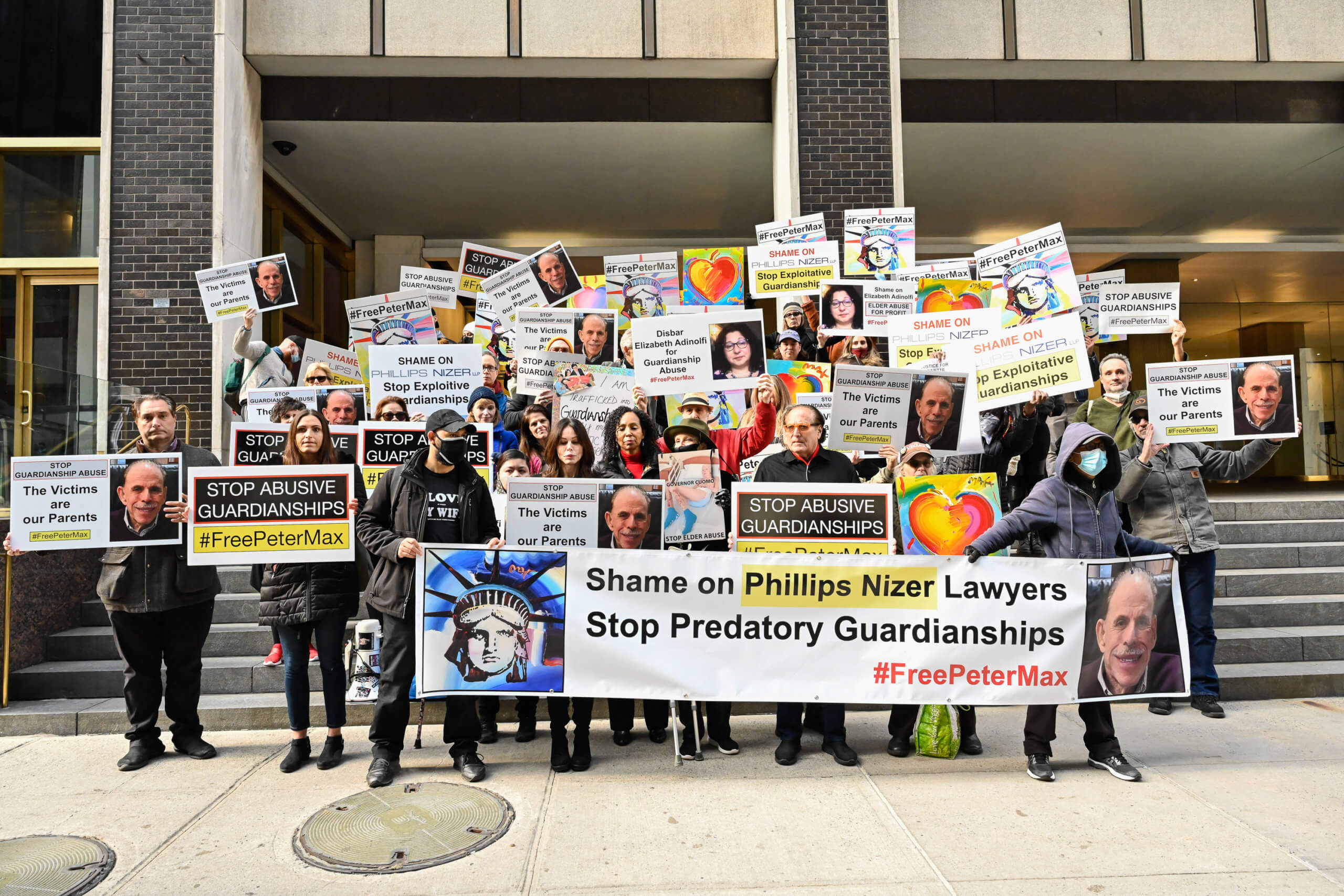As the #FreeBritney movement was gaining steam in 2019, one fan took
aim at Britney Spears’ then-business manager, Lou Taylor, creating
a parody website under her name. Jokingly subtitled “Your #1 source for the gay demon exorcist,”
www.loumtaylor.com featured various articles that were republished from other sites, including a story about Spears
allegedly calling Taylor a “stalker.”Taylor
apparently wasn’t amused, and she filed a lawsuit against Bryan Kuchar,
alleging the 32-year-old medical assistant was trying to “exploit
Taylor’s fame and goodwill” and damage her reputation. And though Spears
wasn’t a party in the lawsuit or even criticized by the fansite, she
paid: Her dad, Jamie Spears, authorized $153,759 from her estate to the
two Atlanta-based law firms that represented Taylor as well as an
unspecified amount to another firm that handled a cease-and-desist
letter on Taylor’s behalf, according to court documents.
The site was taken down, and Taylor and Kuchar ultimately reached a
confidential settlement in March 2020. But what remains in question is
whether Spears should have footed the bills for Taylor; based on the pop
star’s own recent statements, she’s thankful for the fans who’ve
attacked the conservatorship, and she’s been critical of her management.
“My
dad and anyone involved in this conservatorship and my management — who
played a huge role in punishing me when I said, ‘No.’ Ma'am, they
should be in jail,” Spears told a judge earlier this year.
The ongoing dispute over whether Spears’ money should have covered
Taylor’s legal bills is just a preview of the accounting issues that
will likely come up as Spears’ legal team tries to claw back funds they
believe were used for illegitimate purposes or wasted on legal services
that provided no benefit to her. In his investigation, Spears’ attorney
Mathew Rosengart has brought on lawyers who focus on fiduciary and
estate litigation as well as an expert in fraud and money laundering who
previously worked on special counsel Robert Mueller’s probe of Russian
interference in the 2016 US election. If they uncover evidence that
Jamie Spears misappropriated his daughter’s money or engaged in any
other misconduct, Rosengart has said Britney Spears will sue.
“I
said at the outset that my firm and I were going to take a top to bottom
look at what Jamie Spears and his representatives have done here,”
Rosengart told a crowd of #FreeBritney supporters in downtown Los
Angeles on Sept. 29 after a judge suspended the singer’s father
from the conservatorship. “That’s already in process and it will
continue for as long as [it takes] … to get justice for Britney.”
 |
| Rosengart speaks to #FreeBritney supporters outside the courthouse in downtown Los Angeles on Sept. 29. |
On Nov. 12, just weeks before the pop star’s 40th birthday and more
than five months after she publicly criticized the arrangement in an
explosive public hearing,
Los Angeles County Superior Court Judge Brenda Penny is expected to
terminate Spears’ conservatorship. Penny will then consider whether to
approve payments to the attorneys who represented Spears, her father,
and Jodi Montgomery, the current conservator of Spears’ personal
affairs, in the conservatorship at another hearing on Dec. 8. Under
state law, Britney Spears has had to pay for both her attorney and her
conservators’ attorneys.
The judge will likely also review Jamie
Spears’ accounting report detailing the money that went in and came out
of his daughter’s estate during 2019. While much of the public version
of the report is redacted, documents filed by the singer’s former
court-appointed attorney, Sam Ingham, in November 2020 show Spears is
raising issues with the payments to cover Taylor’s legal fees and also
nearly $400,000 in transactions paid to Taylor’s management company, Tri
Star Sports & Entertainment group.
For years, Tri Star had earned a percentage of Spears’ gross income,
which topped $100 million during her Las Vegas residency alone. But in
2019, the pop star for the first time under the conservatorship stopped
working. According to the court documents, Jamie Spears modified Tri
Star’s compensation arrangement late that year, approving — without
notifying his daughter, her attorney, or the court — a new $500,000
annual floor after Taylor complained that her company had lost $400,000
as a result of the singer’s work hiatus. As a result of the new
arrangement, Jamie Spears paid Tri Star an additional $308,974.51, a
payment that Ingham said amounted to “a 260% increase” from what it
would have otherwise received that year. Jamie Spears also paid Tri Star
another $80,000 for “accounting services” prior to changing the
company’s compensation structure, according to the documents.
“These
radical new arrangements were made by JAMES without any apparent legal
obligation to do so,” Ingham wrote. “There is no indication that he
questioned the propriety of TRI STAR’s huge fee increase, attempted to
negotiate a more favorable deal, or even requested supporting detail for
the ‘time and billing.’”
In court documents, Jamie Spears’
attorneys said his decision to set a new compensation floor was
“reasonable” and protected the estate. Their response to Ingham’s
questions about the “accounting services” payment is redacted.
In a
Nov. 12, 2019, email about the change, Taylor suggested that the
$500,000 floor should also apply for 2020, court documents show. It’s
unclear whether that ultimately happened. Jamie Spears has not yet filed
an accounting report for last year. Taylor and Tri Star resigned as
Britney Spears’ manager in fall 2020.
An attorney for Taylor and her company did not respond to BuzzFeed News’ questions.
 |
| A Britney Spears supporter holds a sign at the #FreeBritney Rally in Washington Square Park on Sept. 29, 2021, in New York City. |
In more recent filings, Rosengart, who was hired by Spears this July
when the court allowed her to retain her own counsel for the first time,
has taken aim at the legal fees her father’s attorneys have charged
over the last year, as well as the salary that Jamie Spears collected as
conservator. Of particular concern is a request by Jamie Spears’ former
attorney Vivian Thoreen and her firm Holland & Knight LLP that the
estate cover more than $530,000 in fees for dealing with “media matters”
between October 2020 and June 2021 — the time period during which the
New York Times’
Framing Britney Spears documentary sparked a
cascade of public criticism over Jamie Spears’ continued hold over his
daughter’s life in spite of her return to a successful music career.
In
a July 2021 declaration, Thoreen wrote that dealing with media coverage
and inquiries was “an increasingly unavoidable and necessary” part of
their work. She said Holland & Knight’s primary goal was “to
minimize/protect Ms. Spears, her brand and image, and ultimately, her
Estate from potential damage from inaccurate and/or false press and
social media coverage.”
But Rosengart argued that the firm instead
worked to protect Spears’ father, not Spears herself, and that the
publicity around the case was only critical of him and the
conservatorship. Shortly after the documentary’s release, Thoreen appeared on ABC’s Good Morning America
and CNN, telling the networks that “Jamie saved Britney’s life” and he
“believes every single decision he has made has been in her best
interest.”
“Fees spent trying to defend the reputation of a
departing Conservator do not benefit the Conservatee and must not be
charged to or collected from the Conservatee’s assets,” Rosengart wrote
in a September filing.
 |
| Jamie Spears, father of singer Britney Spears, leaves the Stanley Mosk Courthouse on Oct. 24, 2012, in Los Angeles. |
Rosengart has also questioned the scope of the work by Thoreen’s
firm, which Jamie Spears hired as his “litigation counsel” in October
2020, in addition to his representation by Freeman, Freeman and Smiley
LLP. Both legal firms worked on the court filings seeking approval of
his legal fees until their resignation last month, following his removal
from the conservatorship.
Thoreen and Freeman firm partner
Geraldine Wyle did not respond to BuzzFeed News’ request for comment,
and Jamie Spears’ new attorney also did not respond to questions.
Though
Rosengart has vowed to investigate Jamie Spears’ actions since the
conservatorship was created in 2008, legal experts told BuzzFeed News it
may be difficult to recoup money or obtain recourse for decisions made
in the 11 years that the court has already approved accounting reports
for. Only money spent in 2019, 2020, and 2021 has yet to be approved by a
judge.
“Britney’s team is at a disadvantage,” said Zoe
Brennan-Krohn, a staff attorney for the ACLU’s Disability Rights
Program. “Her father had this court-approved relationship that gave him a
lot of leeway, so it can be very hard to disentangle the authorized
financial decisions from fraud or self-dealing or anything like that,
which is a real problem with giving that much power to someone.”
In
addition to the $16,000 salary and $2,000 allowance for office space
that he collected each month during the conservatorship, Jamie Spears
also received 1.5% of the gross revenues from his daughter’s four-year
Las Vegas residency Britney: Piece of Me, which raked in more than $130 million between 2013 and 2017. He also took in 2.95% of the receipts from her 2011 Femme Fatale
tour. Both compensation arrangements were approved by the court, but
legal experts told BuzzFeed News they pose an apparent conflict of
interest.
“He is charged to look out for her health and well-being
while at the same time being paid if she works, no matter how healthy
she is,” said Jonathan Martinis, an attorney who has spent years helping
people in conservatorships and guardianships get their rights back. “He
had a financial interest in pushing her on stage.”
 |
| Spears performs at the 2016 iHeartRadio Music Festival in Las Vegas. |
It does not appear that Ingham, who was Britney Spears’ attorney at
that time, filed objections to either of her father’s requests for gross
receipts from her performances, according to BuzzFeed News’ review of
the court records. Martinis, senior director for law and policy in the
Burton Blatt Institute at Syracuse University, said that while the
courts are supposed to closely review requests like these, they often
rubber-stamp them if they’re unopposed.
“In my experience, the vast, vast, vast majority of unopposed motions
are granted because again, if someone had a problem they’d have
objected,” he said. “Unless, of course, they didn’t know they had a
right to object.”
Spears may not have known she could object to
how her father was paid from her performance income; Rosengart did not
respond to BuzzFeed News’ questions. During her public testimony in
June, Spears said she didn’t know that she could file a petition to end
the conservatorship, and she described feeling forced to work against
her will because of it.
“My management said if I don’t do this
tour, I will have to find an attorney, and by contract, my own
management could sue me if I didn’t follow through with the tour,” she
said. “It was very threatening and scary. And with the conservatorship, I
couldn’t even get my own attorney. So out of fear, I went ahead and did
the tour.”
Spears’ money may also have been used to spy on her. In the Times’ follow-up documentary, Controlling Britney Spears,
a former employee of the pop star’s security team alleged that all
communication on her phone was monitored and that an audio recorder was
even placed in her bedroom.
When referencing the issue during the
Sept. 29 hearing, Rosengart emphasized that, according to the Times’
reporting, Jamie Spears “instructed his security team, which was paid by
him from my client’s funds, from my client’s estate” to secretly bug
her bedroom.
“Ms. Spears knows about the allegation,” Rosengart told the court. “And imagine the traumatic effect that that has had on her.”
During
the hearing, Thoreen, then Jamie Spears’ attorney, dismissed the
report, saying the documentary was “not admissible evidence.” She added,
“We dispute the allegations.”
In California, it’s illegal to
record people’s private conversations without their knowledge or
consent, but it’s unclear whether anyone could face criminal charges.
People under conservatorships, or guardianships in other states, lose a
wide array of civil liberties and rights — including that of privacy.
“Some
states literally come out and say that the guardian or conservator has
the same power over the person as a parent does over a minor child,”
Martinis said. “The rights go away and they get embodied in the
conservator or the guardian [who] then has the right to do things like
surveil — or thinks they do.”
Though Spears has accused her father
of abuse, conservators, or guardians as they’re called in some states,
rarely face consequences for allegedly mistreating conservatees or
mismanaging their affairs. That’s in part, Brennan-Krohn said, because
of a presumption by courts — and by society — that conservators are
benevolent actors. The name itself “brings to mind guardian angels,” she
said.
Most conservatees don’t have the resources to challenge
their conservatorships, let alone pursue civil lawsuits against those
authorized to make decisions for them. “It's a relatively underutilized
area of law,” Brennan-Krohn said.
But Britney Spears is not like
most people. And the international attention on her case could pave the
path for others to pursue lawsuits for harm they experienced while in
conservatorships, experts said.
Martinis said he hopes that if Spears is able to prove her father
mishandled her money, exploited her, or abused her and hold him liable
for it, that others in similar positions will know accountability is
possible. And perhaps, he said, guardians “think twice before they hurt
somebody.”
“Because there was no accountability before,” he added.
“Maybe, just maybe because of Britney Spears, there will be
accountability now.”
